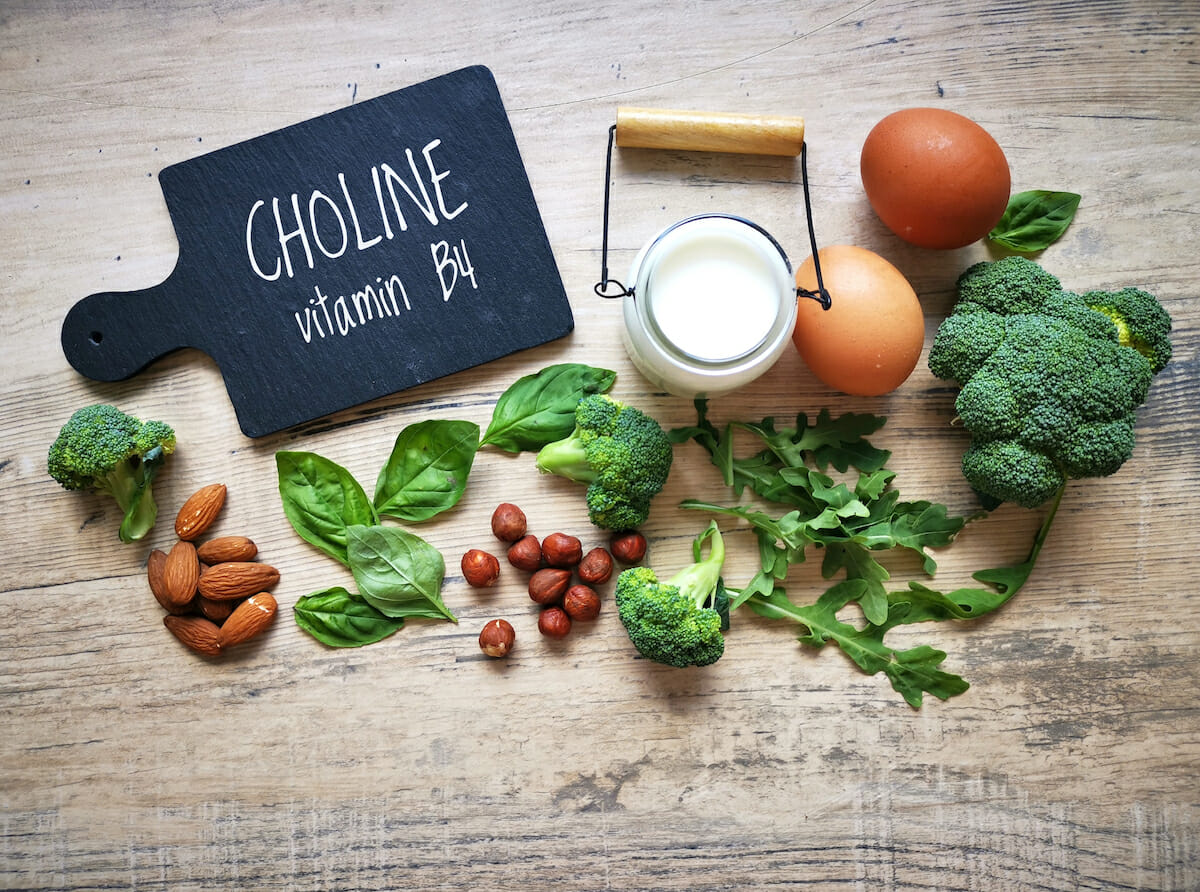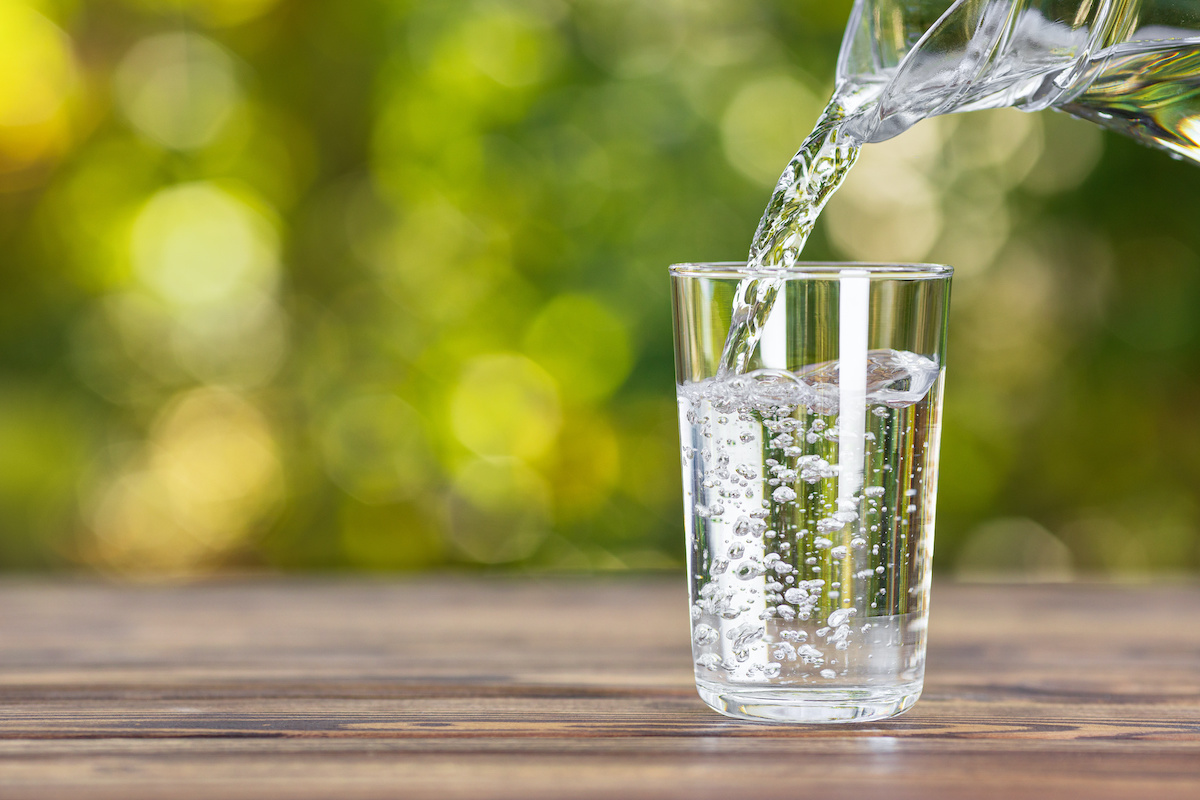
Choline is a nutrient that is found in many foods. Your brain and nervous system need it to regulate memory, mood, muscle control, and other functions. You also need choline to form the membranes that surround your body’s cells. You can make a small amount of choline in your liver, but most of the choline in your body comes from the food you eat.
How much choline do you need? The amount of choline you need each day depends on your age and sex. Average daily recommended amounts are listed below in milligrams (mg).
Life Stage Recommended Amount
Birth to 6 months 125 mg
Infants 7–12 months 150 mg
Children 1–3 years 200 mg
Children 4–8 years 250 mg
Children 9–13 years 375 mg
Teen boys 14–18 years 550 mg
Teen girls 14–18 years 400 mg
Men 19+ years 550 mg
Women 19+ years 425 mg
Pregnant teens and women 450 mg
Breastfeeding teens and women 550 mg
What foods provide choline? Many foods contain choline. You can get recommended amounts of choline by eating a variety of foods, including the following:
- Meat, eggs, poultry, fish, and dairy products
- Potatoes and cruciferous vegetables such as brussels sprouts, broccoli, and cauliflower
- Some types of beans, nuts, seeds, and whole grains
What kinds of choline dietary supplements are available? Some multivitamin–mineral dietary supplements contain choline, often in the form of choline bitartrate, phosphatidylcholine, or lecithin. Dietary supplements that contain only choline are also available.
Are you getting enough choline? The diets of most people in the United States provide less than the recommended amounts of choline. Even when choline intakes from both food and dietary supplements are combined, total choline intakes for most people are below recommended amounts.
Certain groups of people are more likely than others to have trouble getting enough choline:
- Pregnant women
- People with certain genetic conditions
- People who are being fed intravenously
What happens if you don’t get enough choline? Although most people in the United States don’t get recommended amounts of choline, few people have symptoms of choline deficiency. One reason might be that our bodies can make some choline. However, if a person’s choline levels drop too low, he or she can experience muscle and liver damage as well as deposits of fat in the liver (a condition called nonalcoholic fatty liver disease that can damage the liver).
What are some effects of choline on health? Scientists are studying choline to better understand how it affects health. Here are some examples of what this research has shown.
Cardiovascular disease: Some research shows that getting enough choline might help keep the heart and blood vessels healthy, partly by reducing blood pressure. Other research suggests that higher amounts of choline might increase cardiovascular disease risk. More research is needed to understand whether getting more choline from the diet and supplements might raise or lower the risk of cardiovascular disease.
Neurological disorders: Some studies have found a link between higher intakes of choline (and higher blood levels of choline) and better cognitive function (such as verbal and visual memory). However, other studies have shown that choline supplements do not improve cognition in healthy adults or in patients with Alzheimer’s disease, Parkinson’s dementia, or other memory problems. More research is needed to understand the relationship between choline intakes and cognitive function as well as to find out whether choline supplements offer any benefit to patients with dementia.
Nonalcoholic fatty liver disease: There may be a link between low intakes of choline and the risk of developing nonalcoholic fatty liver disease (NAFLD). NAFLD is a condition in which fat builds up in the liver of people who do not drink excessive amounts of alcohol. It is a common liver disorder, especially in people who are overweight or have obesity. Getting enough choline is necessary for proper liver function and to prevent NAFLD. But more research is needed to better understand how choline might help prevent or treat NAFLD.
Can choline be harmful? Getting too much choline can cause a fishy body odor, vomiting, heavy sweating and salivation, low blood pressure, and liver damage. Some research also suggests that high amounts of choline may increase the risk of heart disease.
The daily upper limits for choline include intakes from all sources—food, beverages, and supplements—and are listed below.
| Life Stage | Upper Limit |
| Birth to 12 months | Not established |
| Children 1–3 years | 1,000 mg |
| Children 4–8 years | 1,000 mg |
| Children 9–13 years | 2,000 mg |
| Teens 14–18 years | 3,000 mg |
| Adults | 3,500 mg |
Does choline interact with medications or other dietary supplements? Choline is not known to interact with any medications. Tell your doctor, pharmacist, and other health care providers about any dietary supplements and prescription or over-the-counter medicines you take. They can tell you if the dietary supplements might interact with your medicines or if the medicines might interfere with how your body absorbs, uses, or breaks down nutrients such as choline.
Choline and healthful eating: People should get most of their nutrients from food and beverages, according to the federal government’s Dietary Guidelines for Americans. Foods contain vitamins, minerals, dietary fiber, and other components that benefit health. In some cases, fortified foods and dietary supplements are useful when it is not possible to meet needs for one or more nutrients (for example, during specific life stages such as pregnancy). For more information about building a healthy dietary pattern, see the Dietary Guidelines for Americans and the U.S. Department of Agriculture’s MyPlate.
Where can you find out more about choline?
- For general information about choline:
- Office of Dietary Supplements Health Professional Fact Sheet on Choline
- For more information on food sources of choline:
- U.S. Department of Agriculture’s (USDA) FoodData Central
- Nutrient List for choline (listed by choline content), USDA
- For information about building a healthy dietary pattern, visit:
https://www.myplate.gov
https://www.dietaryguidelines.gov
The National Institutes of Health (NIH) Office of Dietary Supplements (ODS) provides information that should not take the place of medical advice. We encourage you to talk to your health care providers (doctor, registered dietitian, pharmacist, etc.) about your interest in, questions about, or use of dietary supplements and what may be best for your overall health.









